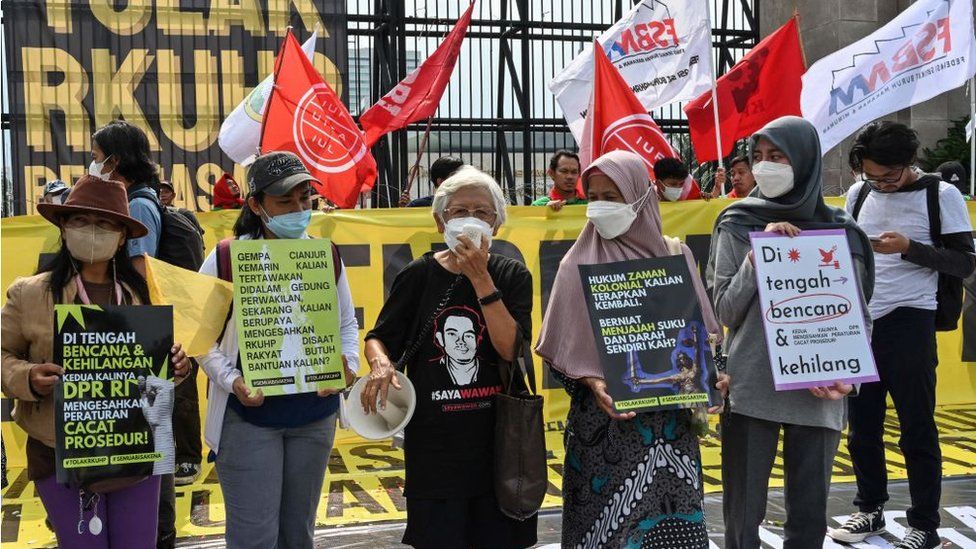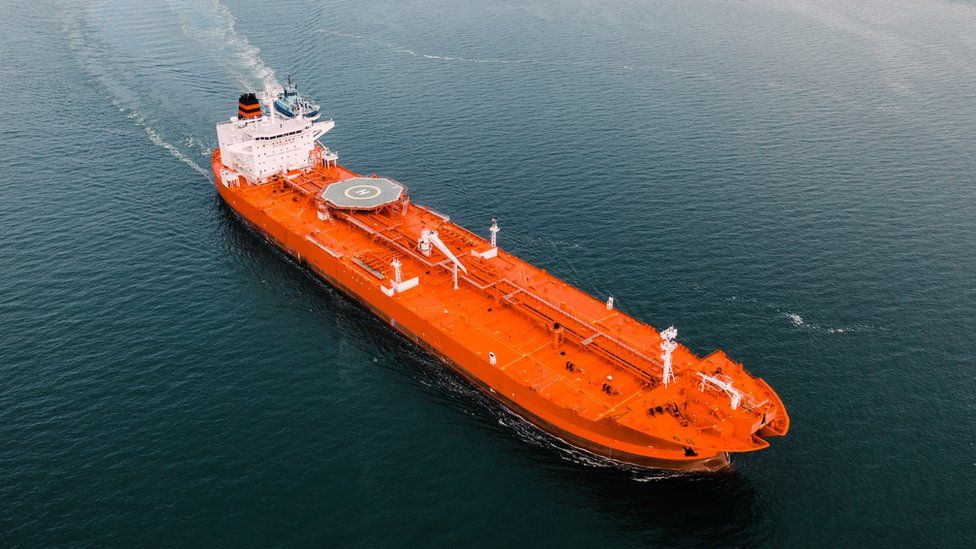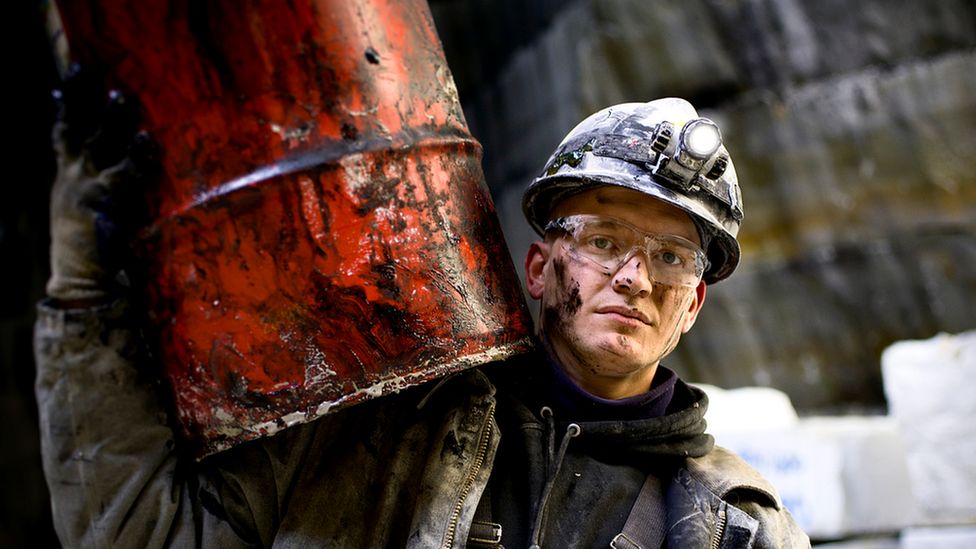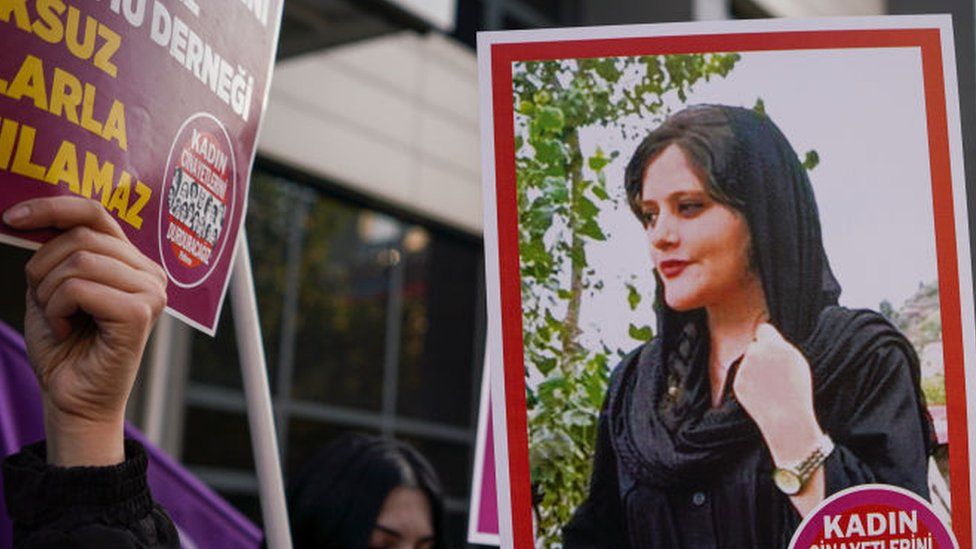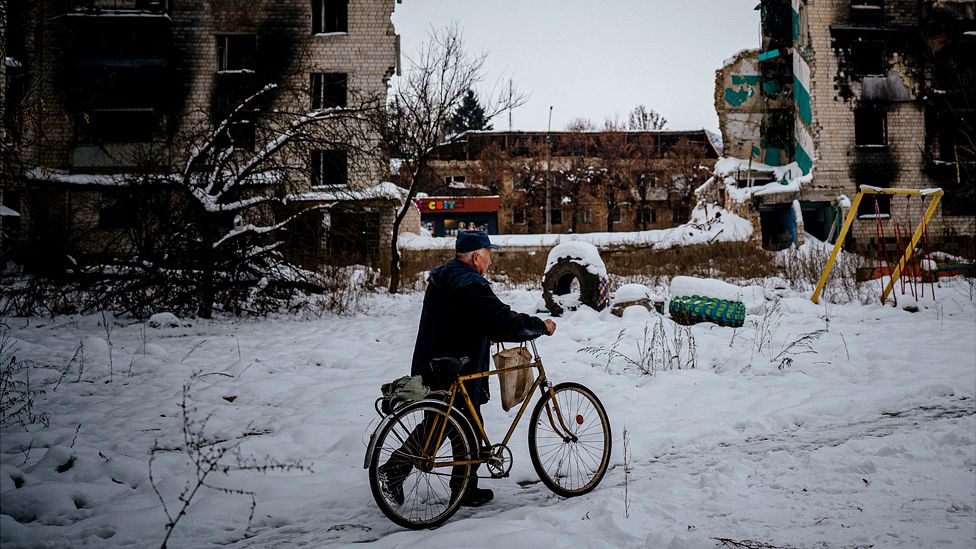
Ukraine is switching to emergency shutdowns to stabilise its power grid after Monday's Russian missile attacks, President Volodymyr Zelensky has said.
He said many regions were affected, and the local authorities warned that about half of the Kyiv region would remain without electricity in the coming days.
Four people were killed in Monday's attacks.
Overnight, more missiles hit critical infrastructure near the southern city of Zaporizhzhia, officials said.
In a separate development on Tuesday, the governor of Russia's Kursk region said a drone attack on an airfield set an oil storage tank alight.
Video posted online shows fierce flames and dense black smoke billowing from the site.
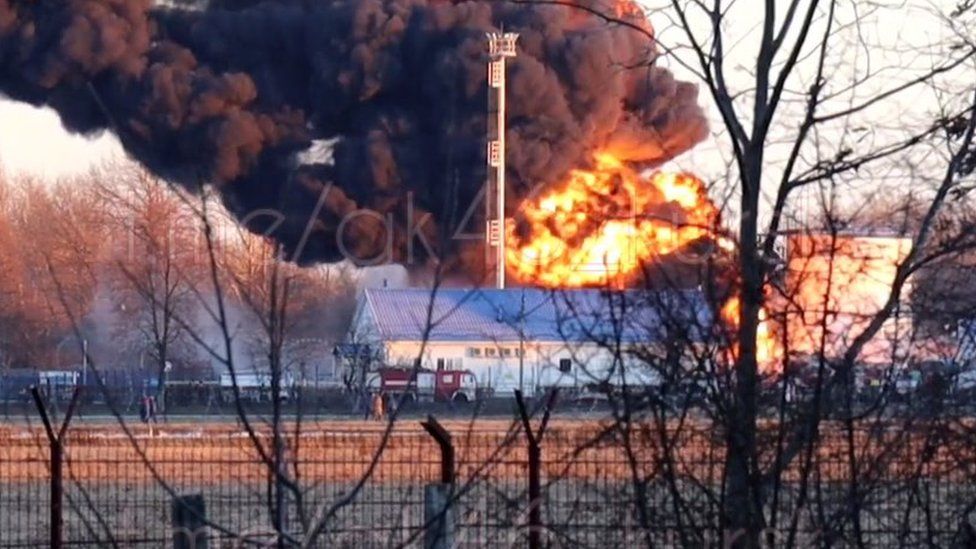
There were no casualties, said Roman Starovoyt, but two local schools were closed for the day. He did not say who could be behind the attack in the region that borders Ukraine.
In Ukraine, the energy minister said he hoped to significantly reduce the power deficit caused by the latest Russian strikes by Tuesday evening, bringing nuclear power stations back onto the grid.
The country is now seeing snow and sub-zero temperatures in many regions, and millions are without electricity and running water. There are fears that a number of people may die of hypothermia.
In his video address late on Monday, President Zelensky said 70 Russian missiles were fired on Monday, and "most of them were shot down".
Mr Zelensky said "the biggest number of shutdowns is in Vinnytsia, Kyiv, Zhytomyr, Dnipropetrovsk, Odesa, Khmelnytskyi and Cherkasy regions", referring to regions spanning the length and breadth of the country.
But he pledged that the authorities "will do everything to restore stability".
The Ukrainian leader said electricity supplies were also affected in neighbouring Moldova, proving that Russia's actions were "a threat not only to Ukraine, but also to our entire region".
The Russian defence ministry claimed it had carried out massive high-precision strikes on Ukraine's military command and control systems, and on other targets.
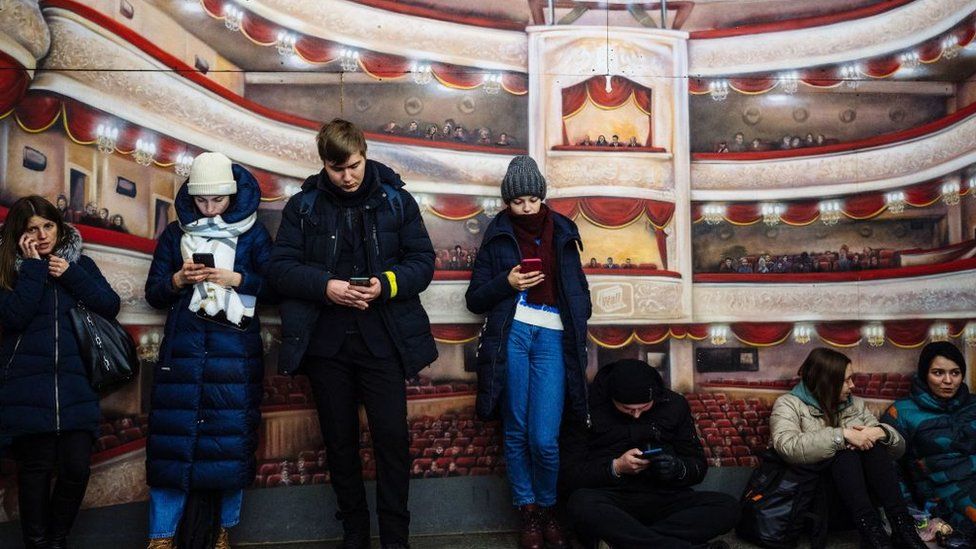
Monday's strikes were Russia's eighth massive missile attack in eight weeks, and came after days of repeated warnings that Moscow was planning the fresh assault.
The assault eventually arrived just hours after a series of explosions at two military airfields deep inside Russia, which Moscow blamed on Ukrainian drones intercepted by Russian air-defences.
Three servicemen were killed and two aircraft were lightly damaged at the airfields in the Ryazan and Saratov region, the Russian defence ministry said. Ukraine has not publicly commented on the issue.
The two airfields - hundreds of kilometres from Ukraine's border - house Russian strategic bombers that have been used to carry out missile attacks since Moscow's full-scale invasion of Ukraine began on 24 February.
President Vladimir Putin chaired a meeting of Russia's security council on Tuesday - a meeting that usually happens on Fridays.
State TV showed a clip from his opening remarks, in which the Kremlin leader said the subject of the meeting would be state security.
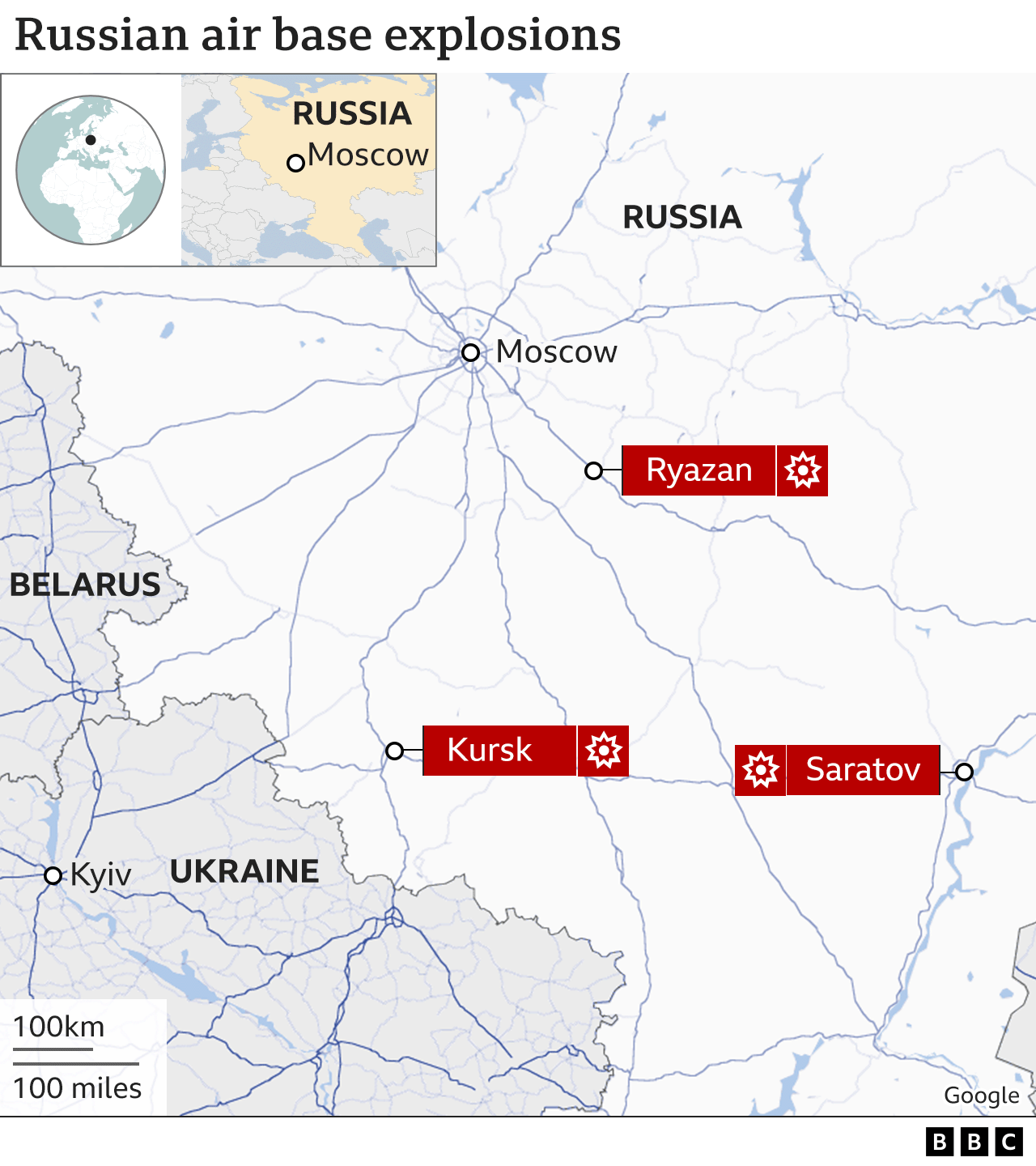

Before the latest Russian strikes, officials in Kyiv were talking about moving from highly disruptive emergency blackouts, which often last for many hours, to more manageable scheduled power cuts which offer civilians some badly needed predictability.
Moscow has been battering Ukraine's power grid since 10 October, following a string of heavy military defeats on the battlefield.
Some Western leaders have called the strategy a war crime, because of the huge amount of damage caused to civilian infrastructure.
Experts have told the BBC that Russia's tactic of hitting energy infrastructure is most likely designed to demoralise and terrorise the population, rather than gain any concrete military advantage.
Moscow has repeatedly denied the allegations.
https://news.google.com/__i/rss/rd/articles/CBMiLmh0dHBzOi8vd3d3LmJiYy5jb20vbmV3cy93b3JsZC1ldXJvcGUtNjM4NjgxNTjSATJodHRwczovL3d3dy5iYmMuY29tL25ld3Mvd29ybGQtZXVyb3BlLTYzODY4MTU4LmFtcA?oc=5
2022-12-06 12:39:23Z
1687285030
